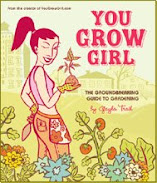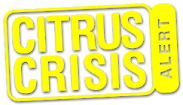Why good soil is so-o-o important
You'll want to share this bit of wisdom with all your friends: Healthy soil is the
How ocean plants help earth plants
Seaweed, which originates from the ocean's garden, is one of the best materials for an earth garden. For one thing, kelp helps stimulates soil bacteria. This, in turn increases fertility of the soil by humus formation (which feeds on the bacteria), aeration and moisture retention. Let's look at some other ways that kelp helps:
Seed germination is improved
Fruits and vegetable have a greater nutritional value
Plants develop more extensive root systems, which means healthier foliage, flowers and fruit
Plants have a greater resistance to nematodes, disease and pests.
Where, oh where to find seaweed
If you live near the ocean, then you have it made. By the truckload or bucket, any amount of kelp is a bonus.
Seaweed also comes in a variety of commercial products, as a liquid kelp extract, as a dried kelp meal or blend. Kelp, for example, is the main ingredient in PlanTea, the patented, organic plant food in tea bags. After brewing a batch of PlanTea, you can use it as a concentrate or diluted as a foliar spray. Each 3 x 4-inch tea bag makes 5 gallons of foliar spray.
How to apply seaweed
You can apply fresh kelp directly to the soil (some people suggest rinsing it to remove the sea salt, but for the past 20 years I've never found it necessary). Arrange it as a 2 to 4-inch mulch layer or include it in the compost pile. Seaweed decays quickly because it contains little cellulose. What's nice too, is that you don't introduce weed seeds with seaweed mulch.
You can also apply kelp as a liquid fertilizer at the base of plants to reach the root zone, add it to a drip irrigation system or as a dilute foliar spray. In recent tests at Virginia Polytechnic Institute, soil sprayed with a seaweed solution had 67 percent to 175 percent more roots than untreated soil.
To make your own liquid kelp, add a couple handfuls of seaweed to a 5-gallon bucket of water. Stir the concoction daily for a few days, then strain and dilute it using the ratio of 1 part kelp liquid to 2 parts water.
Any sprayer or mister will work, from hand-trigger units to backpack models. The best times to spray are early morning and early evening, when the liquids will be absorbed most quickly. Spray the tops and bottoms of leaves until the liquid drips off the leaves.
According to Rodale's All-New Encyclopedia of Organic Gardening, sprays of seaweed extract can help prevent plant diseases. "They work by improving the overall health of the plant." Such foliar sprays (liquid fertilizers sprayed on plants) are up to 20 times more effective as a way to supply nutrients when the soil is poor quality or when roots are stressed from transplant shock or suffering from extreme heat and drought conditions.
As people become more sensitive to environmental issues, the need for organic gardening methods plays a critical role in our health and the health of the planet. The use of kelp--a natural, renewable gift from the ocean--helps us with our efforts in the garden. What could be nicer?
From http://www.plantea.com/seaweed-kelp.htm
My Analog Garden
1 day ago












0 comments:
Post a Comment